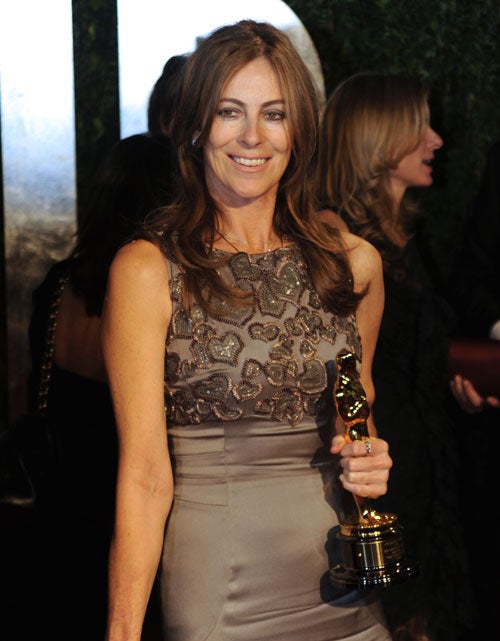Hollywood's women fight back
New research in the US backs female directors' complaints that they are overlooked for the big prizes

Your support helps us to tell the story
From reproductive rights to climate change to Big Tech, The Independent is on the ground when the story is developing. Whether it's investigating the financials of Elon Musk's pro-Trump PAC or producing our latest documentary, 'The A Word', which shines a light on the American women fighting for reproductive rights, we know how important it is to parse out the facts from the messaging.
At such a critical moment in US history, we need reporters on the ground. Your donation allows us to keep sending journalists to speak to both sides of the story.
The Independent is trusted by Americans across the entire political spectrum. And unlike many other quality news outlets, we choose not to lock Americans out of our reporting and analysis with paywalls. We believe quality journalism should be available to everyone, paid for by those who can afford it.
Your support makes all the difference.Has Hollywood tired of gender equality already? When Kathryn Bigelow became the first woman to win the Oscar for best director last year, she described her triumph as "a moment of a lifetime" and her colleagues hailed it as a breakthrough for women in film. Only a year later, it appears the film industry is back to business as usual: not one woman has been nominated in the director's category. But they're not going to take it any more. Not without a fight, at least.
Experts believe a "celluloid ceiling" is still holding women back, with men still dominating the movie business according to a new report. Only 7 per cent of major film directors in 2010 were women, research by San Diego State University's Center for the Study of Women in Television and Film found.
With men largely holding the purse strings, women are struggling to get funding – or even, in some cases, job interviews. Catherine Hardwicke, whose hit vampire film Twilight made $400m, would have liked to direct The Fighter, but was told the movie had to be directed by a man. "I couldn't even get an interview," she revealed last week.
The difference between last year's Academy Awards and this year's is stark: no female directors are up for the directing accolade although two of the 10 films nominated for Best Picture at the Oscars later this month had women at the helm – Lisa Cholodenko's The Kids Are All Right and Debra Granik's Winter's Bone.
Lucy Walker, the British director whose film Waste Land is up for best documentary, said yesterday: "It's rough out there. It's tough in every way. It's tough to be funded. It's tough to be respected. It's tough to be confident in yourself. It's tough to be ambitious. And it's tough to even choose this career if you want a family. I don't see a way in which it's easier [to be a woman], except that I enjoy the challenge of bringing a different perspective."
Martha Lauzen, who analysed the roles women play behind the scenes in Hollywood for the study, said there was little sign of the "celluloid ceiling" disappearing. "One of the things that's so interesting about the percentages of women working on screen and behind the scenes in the film industry is their remarkable stability. They reveal an industry that is incredibly resistant to change."
In Hollywood, as elsewhere, women get stereotyped, Dr Lauzen's research showed, making it easier for them to work in the romantic comedy, romantic drama and documentary genres than in the horror, action and comedy ones. Bigelow's Oscar win for The Hurt Locker, an action film about the Iraq war, was a rare exception.
Rachel Millward, whose Birds Eye View (BEV) festival in London next month champions female film talent, said: "It's tough for female directors to break into the mainstream. It's guys who get those gigs. Kathryn Bigelow's win will have had an impact to a certain extent, but it would be unrealistic for the film industry to change quickly given how long it takes to make feature films."
Zeina Durra, whose The Imperialists Are Still Alive will get its UK premiere at the BEV festival, said she was reluctant to pigeonhole herself as a female director. "When you call yourself a female director, they put you in a 'cute' or 'lesser' category. Being a minority in a market where everyone is scared of funding anything original is tough."
Join our commenting forum
Join thought-provoking conversations, follow other Independent readers and see their replies
Comments